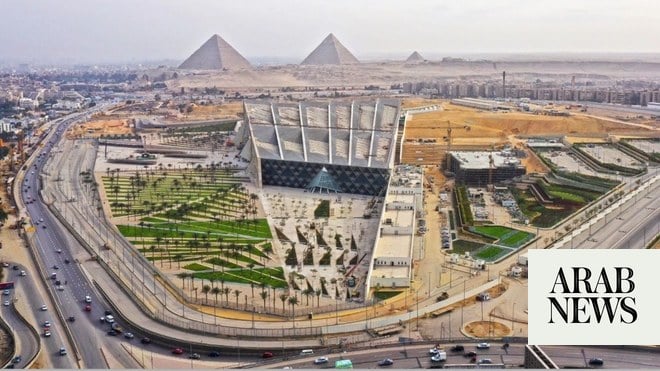
A few days ago I returned from Dubai, in the UAE, where I attended the World Government Summit. This Summit, boasting contributions from a select group of leading political, economic, scientific and intellectual figures, came a few days before the seventh anniversary of the popular uprising that ended Muammar Al-Gaddafi rule in Libya.
It was a true ‘summit’, given the political, economic and scientific ideas and visions, whether expressed from the podium, or through side dialogues and exchanges.
It came as a vivid reflection of the interest in the future, anticipating and preparing for it, more so since it neither waits nor forgives the unprepared, or those who yearn to a backward, restrictive and destructive past.
In the meantime, as I mention the seventh anniversary to the uprising that toppled Al-Gaddafi, I intentionally refuse to describe what Libya lived under between 1969 and 2011 as a ‘regime’.
Actually, I remember well when the news of the 1969 ‘September First Revolution’ broke.
I recall how I received the news that the regime of King Idris Al-Senussi was toppled through my little transistor radio on the balcony of our summer mountain home. I heard that a group of young army officers brought down the regime that our generation – the generation of ‘June 1967 Defeat – believed had passed its sell by date.
Our angry and rebellious generation, then, never forgave the ‘debility’ of the regime of that old venerable king, which we were told contributed directly to the ‘June Defeat’. Those days we were totally convinced that the defeat would not have happened had it not been for enemy fighter-bomber taking off from the Wheelus USAF, near Tripoli to bomb Egypt!
From that balcony I was following the news reports from Libya one by one. I heard early that the ‘Coup Leader’ was an officer called Saadeddine Bu-Shuweireb; and some time passed before the names of the real planners and executors of what became known as ‘September First Revolution’ were revealed.
The new rulers were a group of young officers led by Muammar Al-Gaddafi, who copying earlier Arab military coups, formed a ‘Revolutionary Command Council (RCC)’, before the ‘revolution’ began to devour its children. In addition to the young officers, among the earliest members of the new governing elite were a mélange of young intellectuals such as Palestinian-born Premier Mahmood Suleiman al-Maghribi and veteran opposition politicians like Foreign Minister Saleh Mass’oud Bouweissir.
Back to my generation, which was hopeful of ‘cleansing’ the outcome of the ‘June Defeat’, there was also a strong wish to be optimistic after an ignominious defeat few of us were willing to admit how bad it really was. We simply rejected any reappraisal or calls for accountability, because we were convinced that our defeat came solely as a result of ‘foreign conspiracy’, thus dismissing our fragile political structures, bad reading of realities, and misunderstanding the world around us.
‘Foreign conspiracy’ was a potent drug not only because it was partly true, but also because it provided us with an excuse against self-criticism and shouldering responsibility. Al-Gaddafi and his colleagues were also sons of that generation. For him and them, everything began and ended with ‘foreign conspiracy’; and thus his magic prescription contained two ingredients: revolutionizing society through young mass movements, and achieving any kind of ‘union’, at any price, in any shape or form, in order to prevent division and fragmentation.
I reckon the intentions of Al-Gaddafi and his fellow officers were sincere. In fact, he and Gaafar Nimeiry - who had led a few months earlier (May 15th) in the Sudan another military coup under ‘revolutionary banners – enjoyed the blessings of ‘Nasserist’ Egypt. Many, like me, saw those days that the two young officers’ coups in the Sudan and Libya were the ‘practical response’ against the ‘June defeat’, and a means of repairing damaged dreams and ambitions, especially, as Egypt had begun its ‘war of Attrition’ against the Israelis in the then occupied Sinai.
However, those dreams and ambitions soon proved to be unreal, and rapidly foundered. The end of ‘Nasserism’ following the death of President Gamal Abdel-Nasser in September 1970 brought about awareness of what was really going on both in Egypt, and in the Arab world at large.
Changes were taking place and new realities were emerging everywhere in the Arab world.
In Egypt, the ‘Sadat Era’ began underlining and intensifying ‘Egyptian identity’. The Palestinian ‘resistance’ movement had to change its tactical, strategic and even geographic priorities after its ‘September 1970 experience’ in Jordan. The ‘revolutions’ led by Nimeiry and Al-Gaddafi also underwent massive tests, that led Nimeiry to turn against the Left, and Al-Gaddafi against ‘Arabism’.
Even Iraq and Syria, the two ‘Baathist’ competitors aspiring to inherit the mantle of ‘Arabism’ relinquished by Egypt after signing the Camp David Accords, changed.
The two states turned their back to the ‘secularism’ of the Baath and became minority-led; and so with a few decades the two ‘Fertile Crescent’ twins became occupied and sectarian failed states.
In the opposite direction, the oil boom spurred an unprecedented development in the Gulf States.
The leaderships of these states learnt the lesson, and translated its realistic pragmatism based on common interest into building institutions of entities; and up till now, the employed mechanisms have managed to limit the damages and dangers threatening the Gulf from the ‘post 1979 Iran’.
In Dubai, a few days ago, amazing information and predictions were made.
I was particularly thrilled by Professor Michio Kaku’s presentation about groundbreaking future innovations. However, soon after leaving this journey with the future, I looked back at the past, then the present, and felt the pain.
In this world of ours there are those who plan for the next 20, 50, even 100 years, while we go backwards 100s of years.
Even in the Gulf, there is a tiny minority that is seeking to turn back the forward march to the future.












